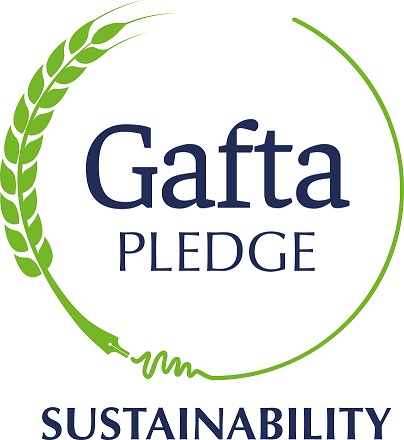From Farm to Firewall: The Certification that Protects the Agriculture and Food Industries from Costly Data Breaches

When we think of agricultural certifications, it is understandable that our minds often conjure up schemes that revolve around food safety. However, another certification is beginning to gain traction in the field, so to speak.
ISO/IEC 27001:2022 provides a framework for information security, cybersecurity, and data privacy protection across various sectors. In relation to farming and food, the certification helps ensure safe sourcing, production, and distribution across the entire supply chain, while also helping farmers maintain their competitive advantage.
In this insight, we will explore how ISO 27001 applies to the agricultural industry, including its role in protecting sensitive data, minimizing supply chain disruptions in the event of a data breach, and ensuring farms and food producers and manufacturers maintain trust with their consumers.
Protecting Sensitive Data in the Agricultural and Food Supply Chain
Like any industry, the agricultural and food sectors are built on vast amounts of proprietary information. From yields and crop varieties to soil composition and harvesting techniques, the multitude of available data points combine to give each farm its own competitive edge in the market.
These elements can help farmers enter niche markets, forecast market demand to stay ahead of the curve, and/or make their practices more efficient, allowing them to bring in larger yields faster than their industry rivals.
Beyond this, like any business, there are also finances and workers to consider, which also come with a vast amount of confidential information that must be protected.
With ISO 27001, companies can use the certification’s framework to develop a robust Information Security Management System (ISMS) that encapsulates all of these data points. By implementing recommended controls for encryption, data classification, and access, these businesses can maintain a firm grip on all their data and retain their market position.

Minimizing Disruption from Supply Chain Data Breaches
The aim of the ISO 27001 certification is for its holders to avoid data breaches altogether. However, as the risks become more complex and the means by which hackers gain access to sensitive information become increasingly sophisticated, a breach remains a real possibility.
If not managed correctly, the result can be a seemingly unending chain of negative events, including financial losses from halting operations and, in some cases, regulatory fines and legal damages. However, on a much grander scale, it could also bring a substantial portion of the food supply chain to a standstill, significantly impacting food security.
To mitigate the damage, ISO 27001 holders can rely on a cornerstone of the certification – its risk assessments. Helping companies take a structured approach to identifying vulnerabilities and opportunities for improvement across a wide range of factors, the risk assessments required by ISO 27001 help prevent breaches from happening and provide incident response and management should they be unavoidable.
Fortifying Trust with Consumers
Building trust with a loyal customer base is important for any business to succeed. However, when it comes to food supply, that trust is absolutely essential.
When we take the EU as an example, the supply chain is built on the principle of “farm to fork”. Consumers want the freshest ingredients, and this comes from a food production supply chain with as few steps in the process as possible.
However, in the event of a data breach, this streamlined system can become compromised and convoluted, creating a domino effect of negative impacts on the food production supply chain that undercuts its traceability and credibility.
With ISO 27001’s ISMS, data from each stage of the process, from ingredient sourcing to shipping, is diligently created, stored, and protected by several controls. And with the certification’s need for comprehensive, clear documentation, businesses are also better equipped to pinpoint exactly where a data breach occurred and respond quickly to rectify the situation.

When agricultural businesses experience the ramifications of a security breach, the sensitive information that is compromised presents a real risk to the people and processes in the supply chain and to food security at large.
However, ISO 27001 can help these businesses to protect their data and safeguard their produce and income from the impact of compromised security. By protecting sensitive data, minimizing disruption, and strengthening trust with consumers, companies can be assured that, with ISO 27001 certification, they are more resilient to potential breaches.
As cyber risks continue to evolve, having an independent auditor like Control Union to verify your compliance with ISO 27001 is a step in the right direction toward enhanced digital resilience and robust data security.

How can I help you?
Are you looking for a certain service, do you have any questions or do you want to apply for the certification program? Let me know. My name is Roshan Ranawake and I’m glad to help.
